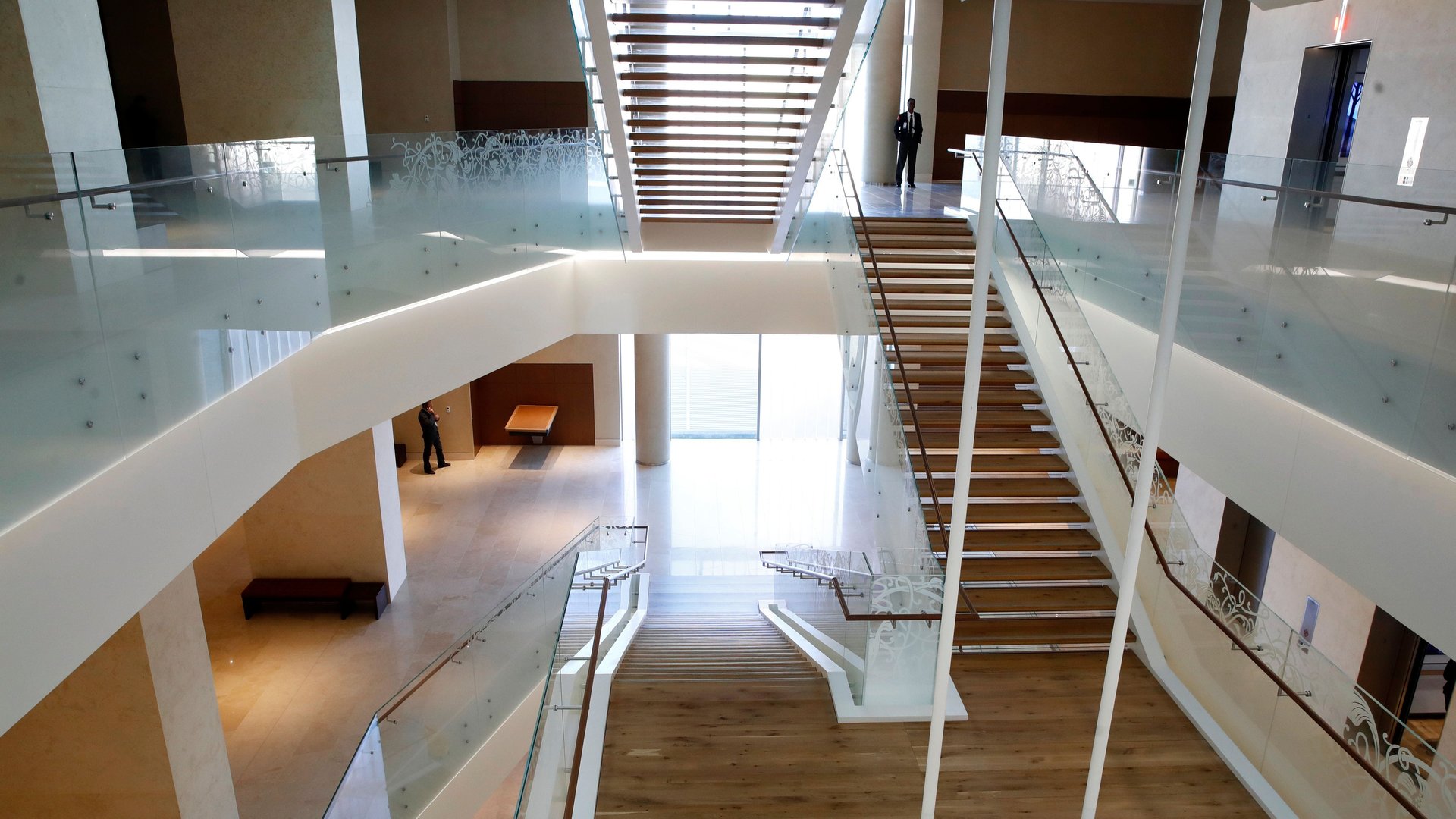The Hobby Lobby-funded Bible Museum says five of its Dead Sea Scrolls are fakes
When a teenage shepherd in the West Bank lobbed a rock into a cliffside cave in 1947, possibly to frighten an animal out of its hiding place, he could not have imagined that he would be triggering one of the most incredible archaeological discoveries of the past century.


When a teenage shepherd in the West Bank lobbed a rock into a cliffside cave in 1947, possibly to frighten an animal out of its hiding place, he could not have imagined that he would be triggering one of the most incredible archaeological discoveries of the past century.
As the rock landed in the cave, the young shepherd heard a shattering noise as it flew into a cache of large clay jars. Inside were leather and papyrus scrolls dating back to at least the 4th century, now known as the Dead Sea Scrolls.
Some 900 manuscript fragments have since been found in the area. In the days before prohibitive UNESCO conventions, a local antiquities dealer, Khalil Iskander Shahin, sold some of these to archaeologists and interested parties. Dozens of other purported fragments have also materialized—not from the region, but out of the workshops of cunning forgers, capitalizing on the keen interest of wealthy US evangelists.
One such fraudster is likely behind five of the 16 supposed Dead Sea Scrolls fragments found in the US Museum of the Bible, in Washington DC. In a statement released yesterday (Oct. 22), the museum announced that these five fragments had “show characteristics inconsistent with ancient origin.”
In short, they’re fakes.
There had been whispers and rumbles about their possible inauthenticity for some time. When the Museum of the Bible opened in November 2017, Live Science reported on the “lingering questions” posed by biblical scholars who examined 13 of the fragments and said there was a “high probability” that at least a few were modern forgeries. (The private museum hoped to put these questions to rest with the help of researchers based in Germany.)
The museum says it will no longer display the fraudulent fragments.
“As an educational institution entrusted with cultural heritage, the museum upholds and adheres to all museum and ethical guidelines on collection care, research and display,” said its chief curatorial officer, Jeffrey Kloha. There is a silver lining of sorts, he added: “This is an opportunity to educate the public on the importance of verifying the authenticity of rare biblical artifacts, the elaborate testing process undertaken and our commitment to transparency.”
The museum is owned by Steve Green, the devout, conservative president of US craft store brand Hobby Lobby. This is not the institution’s first brush with scandal: Thousands of the other artifacts in its collection, including cuneiform tablets, clay stamp seals and other items, were found to have been illegally imported from Iraq. (Hobby Lobby was fined $3 million and told to hand over the goods.)
It’s not clear how many of the 11 other Dead Sea Scroll fragments in its collection may also be forgeries. Scholars believe that there are many more such fakes out there, perhaps including at least a few in the museum. Since 2002, some 75 fragments have been sold. As many as 90% of them are believed to be modern forgeries. Researcher Kipp Davis, from Trinity Western University in Canada, said that he believed “at least seven fragments in the museum’s Dead Sea Scrolls collection” to be counterfeit. “Conclusions on the status of the remaining fragments are still forthcoming.”